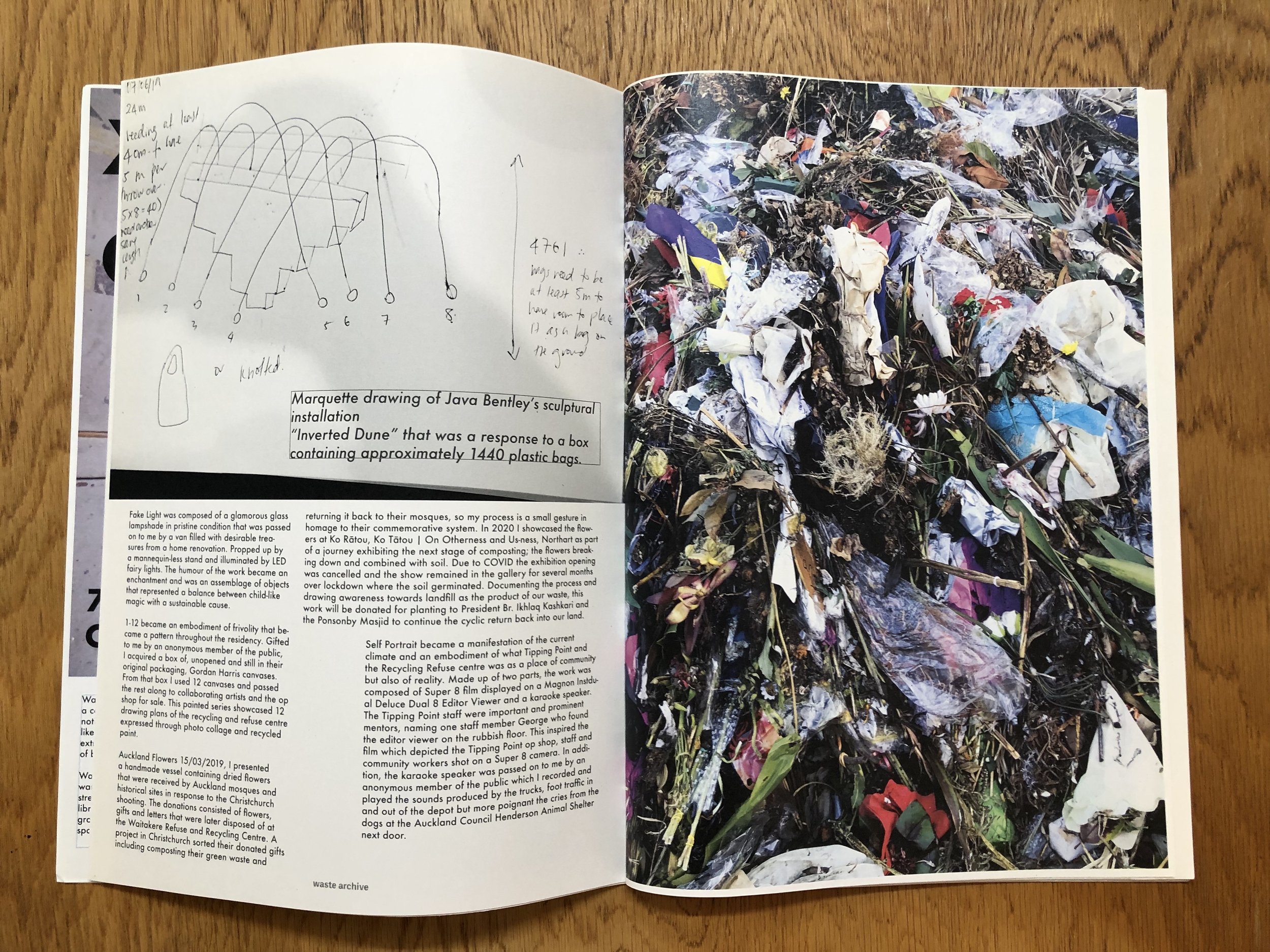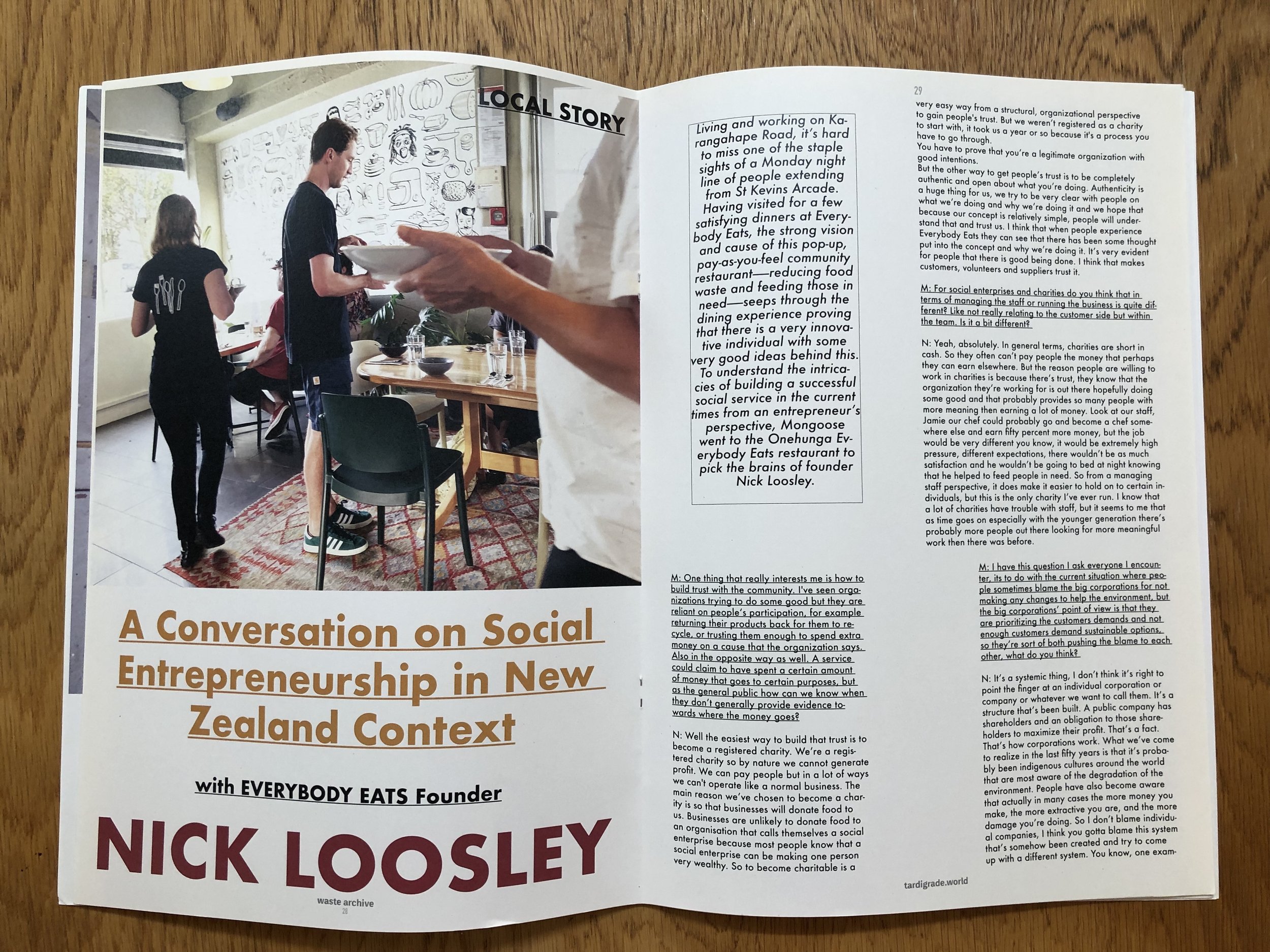Meet Mongoose of Tardigrade World
Mongoose Chen photographed at Manzana with Waste Archive and artwork by Jark Pane/Soraa Glass.
Mongoose Chen is the founder of Tardigrade World which is described as an “art and sustainability research group and a project initiator” exploring “social and environmental contexts in Auckland, New Zealand”.
The most widely known project initiated by Tardigrade World is Mugly, a simple project to mitigate the use of disposable coffee cups (and therefore them going to landfill) by circulating donated secondhand mugs to cafes across the city.
Manzana is excited to launch the latest project by Tardigrade World: Waste Archive, which they describe as: “A spotlight on creative solutions to the waste problem in Auckland.” The first form is a magazine documenting waste mitigation initiatives, printed on waste paper (paper that was discarded by printers due to it becoming aged and discoloured).
The following is an interview with Mongoose about their background, interests, and ultimately motivation to challenge the status quo and try to create a more sustainable world:
You studied art, whereupon realising that purchasing new materials to create art was both expensive and unsustainable, so looked to find what was readily available to up-cycle. Can you tell us about this journey from art to what you do now and what you have learnt along the way?
The relationship I found between art and some art practitioners kind of reflects a general problem between humans and materials. My interest in art is more about human behaviour. Artists work in a different way from most other jobs. For example, I have strong intuition, and many other jobs would not ask me to use my intuition that much. I wanted to expand this “weird” habit of working to something else.
Art making is a lifestyle and also a way of thinking. I see it as a type of entrepreneurial attitude and I like it. I don't like having a conventional life that follows what others have already done.
Waste Archive Issue No. 1 - ‘The Tipping Point’ Artist Residency with Java Bentley
Can you tell us a bit about the “waste problem in Auckland”?
The way I understand the world is based on how I estimate the unconscious part of it. I observe the waste problem by finding out how much waste I create myself during daily life. I’m observant of how some people have a kind of problematic attachment to materials in general, the “If I cannot see it then it is not my problem” syndrome.
I think the problem in Auckland is the same as everywhere else in the developed (or extractive) world. We need to address this problem globally. However, I do not address this as the observer, I am also someone participating in this problematic relationship to waste creation, and it is better to think of my relationship to waste inwardly instead of outwardly as if I am the judge of the problem.
Waste Archive Issue No. 1 - Interview with Nick Loosley founder of Everybody Eats
What are some of the creative solutions documented in the first issue of the Waste Archive magazine that mitigate these problems?
Half of the content is about artists and the other half is on social entrepreneurs and social activists. I researched on what are the biggest waste streams and want to find out certain content reviews that. Plus certain artists stories to make it more interesting to read.
I think there are a lot of uncertainties that I want to talk about in the magazine as well since we have the potential to make this situation better, but we need to find out what they are, this magazine is just showing the process of us that.
Waste Archive Issue No. 1 - Interview with Christy Tennent, owner-operator of Open Coffee: 553 Karangahape Road. Image features Mugly return box




